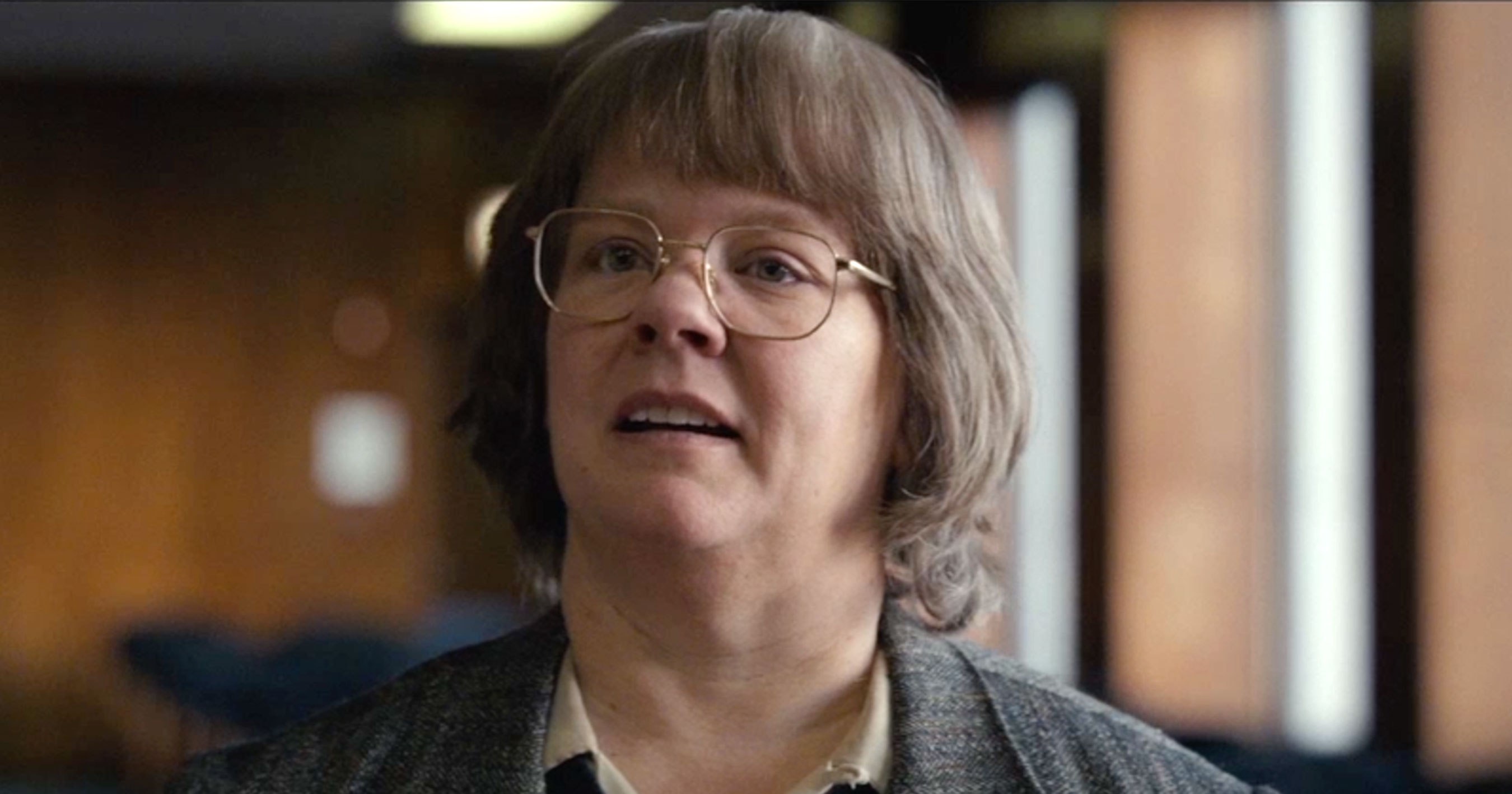Melissa McCarthy has had her claim as the “It” girl of the comedy world, taking it by force of her amazing personality after Bridesmaids. Even in those comedic performances, it was clear McCarthy could use her talents in a more dramatic way as well, and it was only a matter of time before she would start making her mark in the dramatic Oscar realm too. Can You Ever Forgive Me? gives McCarthy her best chance to date, playing writer Lee Israel.
What did Lee Israel (Melissa McCarthy) write? Her best writings before her FBI arrest were forgeries. After getting chewing and getting chewed out by her agent (Jane Curtin), Israel, needing rent money, decides to sell a famous Katherine Hepburn letter she has. Realizing the more witty the letter the more money she can get, the former New York Times bestseller decides to start forging more letters from famous writers of the past, and selling them to various bookstores. When the law starts to catch up to her, she turns to her only friend, Jack (Richard E. Grant), to help sell her letters. However, once the FBI has the trail, it’s clear they’re not going to stop until they catch Israel and her “employee.”
Lee Israel is a part perfectly built to use McCarthy’s breadth of talents. She and writers Nicole Holofcener/Jeff Whitty give Israel a nasty, detached personality, which only attracts people similar to her, or people that know her through her writing. In short: Israel is defined by the fact that she has no one close to her. At this point in life, McCarthy makes it seem like Israel is not only doing this by choice, it’s also a defense mechanism. There’s a heartbreaking dinner where Israel is enjoying her time with a potential new friend, but she without thinking, establishes some barriers that confuse and offput this person, which makes Israel clearly a combination of sad and angry with herself. At this point, Israel had become so isolated that her apartment smells horrifically when someone tries to enter because no one is ever there. That person would be Richard E. Grant’s Jack, whom McCarthy bounces off easily, because he is as broken as her and understands her perfectly well when Israel can’t even understand herself. The reason Israel’s identity crisis is a big problem for her (and which McCarthy shows brilliantly) is that if a writer doesn’t know their voice, why the hell would people want to read her books? It’s also a slippery slope for Lee too: when Jack makes a mistake feeding Israel’s cat, she freaks out and treats him coldly for a long time, further isolating her and keeping herself hidden from herself. Through these forgeries, Israel gains her voice through channeling all of these people, figuring out who she is by the time she is caught. McCarthy’s speech at her hearing isn’t of a woman defeated, but a woman who figured out the missing puzzle piece, and now knows what to do with herself. McCarthy keeps all these little pieces of Lee Israel’s personality obvious but understated, which gives the movie a breezy but melancholy feel as if you’re slightly buzzed like our favorite forger.
I often tire of movies about New York, simply because it gets tiring hearing how magical the city is over and over again. Can You Ever Forgive Me? actually uses New York in a way that shows that magic instead of explaining it to us. We see the artsy dinner parties and hoity toity smart of the literary elite, but from the view of an outsider who scoffs at their appalled reactions to the poor. In addition, the cute little restaurants, bars, and bookstores of the neighborhoods make the city feel like a truly fun place that could inspire Lee Israel to commit the crimes she did. Fake it till you make it right?

